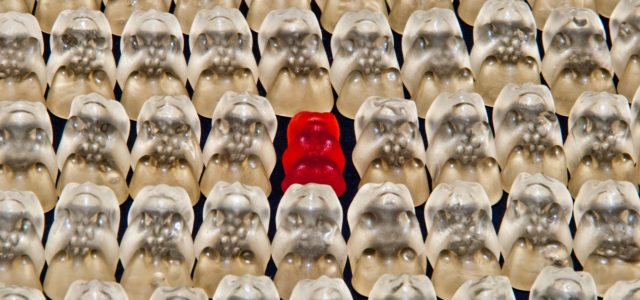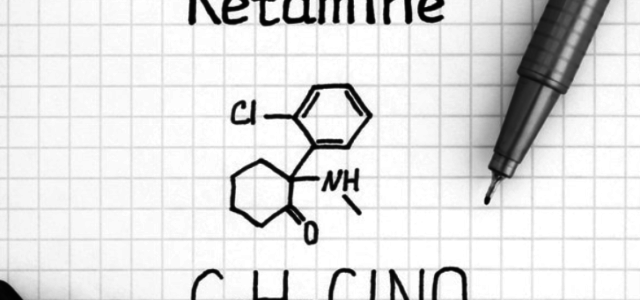Articles About Ketamine from Lori Calabrese, MD | The Ketamine Blog
Breakthrough anesthesia medicine proves life-changing for many who suffer from severe mood disorders.
In the last several years, a medicine began to emerge as a remarkable treatment for mood disorders. It was developed and FDA approved for anesthesia around 1970. Over 25 years later… it began to show its colossal hidden ability. What sort of ability? The power to relieve depression and other psychiatric disorders in a most dynamic way. Disorders like PTSD, bipolar depression, postpartum depression, addiction, social anxiety, and even eating disorders respond to this extraordinary treatment that involves a series of IV infusions. And perhaps the most remarkable of all, ketamine infusions can erase suicidal thinking in a few short hours. These articles about ketamine treatment are presented here to dispel stigma about psychiatric conditions and to give hope about treating them.
Early Testing was Cautious
Researchers tested it with trepidation 10-20 years ago. Then each study built upon the last. Their work revealed more insights about what actually causes depression, and how to treat it effectively. Never before has a medicine helped relieve symptoms in such a wide variety of people and their symptoms.
Researchers Still Learning All Ketamine Can Do
Ketamine works in multiple areas and systems of the brain. It improves the function of mechanisms that have been impaired by the stress of depression and anxiety. It helps the G proteins that pile up on lipid rafts in the cell membrane slide to off. This equips them so they can do their job enhancing signal transmission.
It also turns on the mRNA switch which in turn flips on DNA to build up brain-derived-neurotrophic-factor (BDNF). BDNF then causes synapse connections between neurons to proliferate in turbo mode, transforming and replenishing the connections between brain cells all around the brain, lighting it up with information, cognition, creativity, and insight.
There’s more that it accomplishes, like tamping down the cell bursting in the lateral habenula so you can experience the reward of pleasant moments. We don’t know what researchers haven’t discovered yet, but we look forward to hearing what’s next.
Ketamine Does More Than Bring Relief, It’s Transforming
The results of IV ketamine treatment are transformative. Those who have been weighted under a blanket of lethargic apathy and despair typically find they feel better and better after treatment. They often find they have the energy and motivation to dive into tasks they couldn’t face in recent memory.
More patients with treatment resistant conditions respond to ketamine than any other medicine available. It may sound odd, but the patients it helps the most are those who suffer the most from severe disorders. With continued research, neuroscience researchers and psychiatrists are learning methods of administration that help more and more patients enjoy a rapid and robust response,.
As a result, these individuals enjoy renewed hope. They express amazement at their energy for life and work, and an overall transformation in what they enjoy and are able to accomplish. They report a more balanced and joyful outlook, and the desire to rebuild and strengthen their relationships.
Ketamine is NOT for Everyone
With all the good IV ketamine treatment accomplishes, some people still don’t respond to it at all. The percentage of people who don’t respond is comparatively small, and we need to see more studies that can help explain why.
Why Ketamine Sometimes Doesn’t Work
There are others who have a significant response initially, then the response fades. One reason for that may be they have a deficiency of certain components in their blood. They may have a low folate level, or low testosterone, and some other deficiencies. In cases like this, sometimes replacing those nutrients helps that patient respond to ketamine treatment and experience resilience again. There are even cases where a patient’s blood levels are normal but the levels of certain components in their cerebral spinal fluid is low. By replacing that deficiency, the patient is able to enjoy a very positive and robust response to ketamine treatment.
Neuroscience is gaining knowledge by leaps and bounds in the 21st century. We hope to see more and more medicines that work as well as ketamine for those who have not yet been helped.
These articles about ketamine expand on those things we learn from neuroscience research in the labs, as well as those things we learn from research in our practice.

It’s a heart-shattering tragedy when a child dies. How do you bear such tragedy? …such loss? The waste of a beautiful life…it defies our logic to find reason in it, or to try to make sense of it. But what about when that young child kills herself? Why are young girls turning to suicide? It’s impossible […]
Continue Reading

Like other disorders of the brain and mind, bipolar disorder is complicated. With all the movies and cartoons made at the expense of people who suffer from disorders like this, we want to help more people know more about some of the facts with a bit of bipolar science. It’s different for each person. The […]
Continue Reading

The news outlets, journals, and lifestyle magazines have been chock-full of articles about ketamine treatment for depression the last few years, with sprinklings about esketamine from time to time… Then, this past March, esketamine received FDA approval for depression and suicidal ideation under the name Spravato. Developed by Janssen, owned by Johnson & Johnson, esketamine […]
Continue Reading

In scientific journal letter, Hopkins psychiatrist Adam Kaplin disputes a study claiming ketamine is an opioid. Ketamine has gotten a bad reputation as an opioid—when there’s plenty of evidence suggesting it isn’t one, say Johns Hopkins experts. They believe this misconception may prevent patients from getting necessary treatment for the kinds of depression that don’t respond […]
Continue Reading

Stigma Isolates, Humiliates, and Separates As I think about what to write today, my thoughts are filled with a comment I received from a man who’d read last week’s blog, which you can read here. He wrote that he also suffers from bipolar 1 disorder and was upset and hurt by the description of the young […]
Continue Reading

Ketamine has gotten a bad rap as an opioid when there’s plenty of evidence suggesting it isn’t one, Johns Hopkins experts say. They believe this reputation may hamper patients from getting necessary treatment for the kinds of depression that don’t respond to typical antidepressants. In a new paper, the researchers clarify the mechanism behind ketamine’s […]
Continue Reading

“I don’t care what the &%@!* you think!! It’s all your fault!! I’m outta here!!!” With that, Ben picked up the massive carved oak coffee table and threw it at the window. It hit the window and the wall with a thud, pushing the window frame in a contorted mangle of metal and glass out […]
Continue Reading

Know someone who’s suicidal? Or…how about this? Do you know someone you think might be? Is there someone in your life who’s always down, irritable, short-tempered… even jumpy, maybe? Maybe you wish they’d adjust their attitude, or take a chill pill. Sometimes, people can be like this and the problem is that they might be […]
Continue Reading

BY M. ALEXANDER OTTO REPORTING FROM APA 2019 SAN FRANCISCO – Serial ketamine infusions eliminated suicidal ideation in more than two-thirds of patients at a psychiatry office in Connecticut but at significantly higher doses than those recently approved for Janssen’s new esketamine nasal spray (Spravato). The patients were treated by Lori V. Calabrese, MD, at […]
Continue Reading

When someone commits suicide, you’ll sometimes hear people say, “It makes no sense! She had everything to live for…” Or, “What a selfish thing to do. What about all the people who loved him? What about his kids…his wife..?” But this sort of tragedy isn’t about selfishness. To grasp what happens with your suicidal loved […]
Continue Reading









